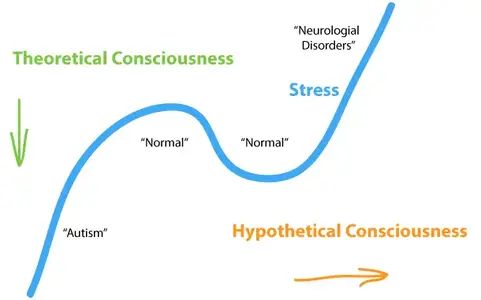Theory:
Morality = Stress + Knowledge
Mammals and perhaps all life and even things are driven by a desire to be understood. Over time, natural selection formed an inverse wave of stress between hypothetical and theoretical consciousness, forming societies.
Aspergers is a section on the theoretical side of an inverse wave between hypothetical consciousness.
Morality = Stress + Knowledge
Mammals and perhaps all life and even things are driven by a desire to be understood. Over time, natural selection formed an inverse wave of stress between hypothetical and theoretical consciousness, forming societies.
Aspergers is a section on the theoretical side of an inverse wave between hypothetical consciousness.
Last edited:
